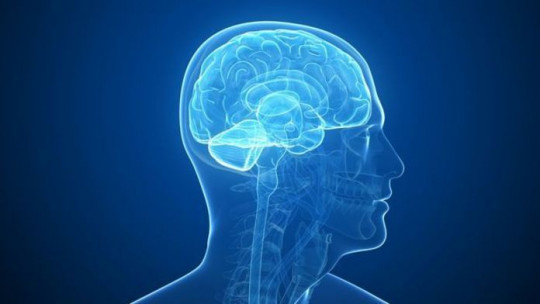The human being is a gregarious and social being, which is in constant contact with other members of its species. In fact, as a species we have always relied heavily on the ability to communicate. And one of our main means of communication is at the same time one of the most complex we have: oral language. Speaking is something that is learned (although there are innate components) and developed throughout life, acquiring over time a rhythm and fluency that allows highly complex messages to be transmitted in a relatively short time.
But sometimes, this ability can be impaired by suffering from a brain injury or trauma. This is what happens with bradilalia which we are going to talk about throughout this article.
What is bradylalia?
When we talk about bradilalia we are referring to the presence of a psychological alteration such as a slowing of language production of variable degree, generally resulting from the presence of some type of brain injury or alteration. It is therefore a disorder of verbal rhythm and fluency.
Although the concept itself would only refer to the speed at which speech is produced, the truth is that generally the affectation does not occur only at the level of rhythm, but the slowing is accompanied by other alterations such as the presence of a decreased verbal fluency, a decreased ability to modulate the tone of the voice (which usually becomes flat and monotonous) and great difficulty when articulating words.
It is also common for multiple blocks to appear during speech, stuttering and some prolongation or repetition of word sounds. In some cases, a variable degree of mutism may appear.
It is important to keep in mind that bradylalia refers to a slowing down of the production or emission of language, that is, the act of speaking. However verbal comprehension may be perfectly preserved the person understanding everything that is said to him.
This type of affectation does not appear spontaneously, being in fact an indicator of the existence of neuronal damage. It would therefore be a symptom of said injury rather than a disorder per se.
Consequences and symptoms
Speech is a fundamental ability in the daily life of most people, which is why the appearance of bradylalia can have severe functional repercussions for people who suffer from them beyond the mere difficulty of speaking.
It is not uncommon for problems when having a conversation to generate problems on a personal and social level , reducing their social life and making effective communications difficult and their mental abilities being undervalued. At the work level, this can also have severe repercussions, making it difficult or even preventing, depending on the sector, the fulfillment of one’s duties.
Furthermore, it is common for their difficulties to also generate an emotional disturbance, especially if they are aware of the presence of said difficulties. In addition to their own concern and possible lack of understanding regarding what has happened to them, It is not strange that irritability appears, decreased self-esteem high levels of anxiety or even that the problems suffered can lead to depression.
Avoidance of social contact, demotivation and loss of desire to do things can also appear, as well as a certain hopelessness. All of this is especially common in those cases that do not show improvement.
Causes of this problem
As we have mentioned previously, the origin of bradylalia is usually found in the presence of some type of brain injury specifically in the areas of the brain linked to language production.
Some of the most common causes of its appearance are the presence of strokes, traumatic brain injuries or neurodegenerative diseases (appearing throughout the development of multiple dementias, such as Parkinson’s or Alzheimer’s). Other circumstances that produce cognitive impairment can also generate bradylalia, such as that found in psychotic patients with negative symptoms
It is not uncommon for it to appear in situations such as poisoning due to substance abuse or disorders derived from it. Some intoxications and poisonings can also cause it, as well as confusional states. The presence of brain infections, such as encephalitis is another possible origin of this language alteration.
Bradylalia can also be found, to a lesser extent, in people who suffer from psychiatric problems, an example being major depression or the aforementioned subjects with psychotic problems and negative symptoms. Finally, it can also be observed in subjects with neurodevelopmental disorders.
Your treatment
The treatment of bradylalia depends largely on its causes, generally requiring a prolonged period of time to achieve progress and It is not always possible to achieve recovery of the usual speed of speech This is because we are facing a problem arising from injury or deterioration of part of the nervous system, an alteration that can be temporary or permanent.
If we are talking about bradylalia caused by the effects of a specific poisoning or depression, it will be possible to overcome it with the application of the relevant treatment. In the case of permanent brain injuries, such as brain injuries, strokes or neurodegenerative diseases, a multidisciplinary approach involving various professionals will generally be applied.
Language problems can be worked on or alleviated (since sometimes complete recovery is not possible) through a combination of speech therapy, speech therapy, occupational work and cognitive stimulation You can also work on physical therapy and strengthening the oral and respiratory muscles. In the event that we are talking about children with neurodevelopmental disorders, in addition to this type of treatment, it will be necessary to take into account their difficulties at school, generating curricular adaptations or individualized plans depending on the case.
Psychoeducation is always important so that the subject understands what is happening to them and what effects it can have on their daily life. Likewise, in cases where recovery of the normal rhythm of speech cannot be achieved compensatory or substitute strategies can be generated , such as the use of other media or communication channels. It must also be applied to the environment, so that it understands the difficulties of the subject. Likewise, psychological therapy, counseling and guidance may be necessary in the presence of acceptance difficulties, grief or emotional problems.









